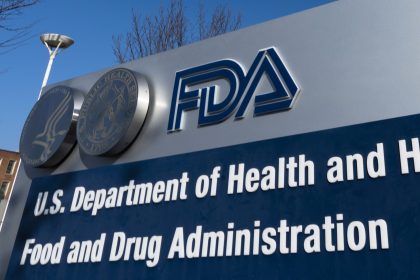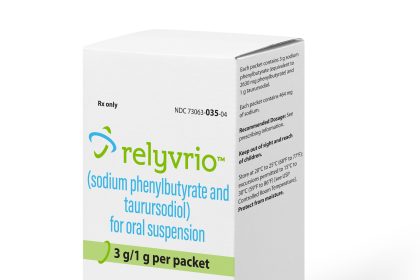Congress Seeks Drug-Pricing Deal in Spite of 2020 Rancor

WASHINGTON — In an election year when nobody expects Congress to pass meaningful legislation, lawmakers are feeling strong political pressure to reach a deal on at least one main voter priority: lowering drug prices.
The most likely result could be a small deal that caps out-of-pocket costs for Medicare beneficiaries but leaves more contentious questions of market intervention until after the election.
The issue is one of few that Democrats and President Donald Trump have vowed to address, even with a rancorous impeachment process, fresh tensions in the Middle East and a presidential campaign getting underway. House Democrats already proved that they’re willing to give Trump a major political victory, when they passed his U.S.-Mexico-Canada free trade agreement the day after impeaching him.
Any drug pricing bill — and other legislation on issues such as ending surprise medical bills and protecting data privacy — would have to go through a similarly rigorous round of negotiations to find the narrow areas of agreement that might have a chance of becoming law in 2020.
Neither the prescription drug bill from House Democrats nor the bipartisan proposal in the Senate Finance Committee has a path forward in a divided Congress, although they could be the starting points for negotiations. John Jonas, a health care lobbyist at Akin, Gump, Strauss, Hauer and Feld, said for any bill to pass this year, it would have to be “close to consensus to get through the buzz saw.”
Government health programs expiring in May give lawmakers one deadline for a possible drug-pricing compromise. Republicans oppose the provision in the Democratic bill that would allow Medicare to negotiate drug prices, and instead proposed a package of smaller initiatives to increase market transparency and access to generic drugs.
“You could certainly see a bill coming together that doesn’t significantly change the landscape,” Jonas said. “Stuff on the margin is generally where Congress comes down.”
There is also a political calculation for Democrats who are wary of working with Trump but want to show voters — especially in swing districts won by Democrats in 2018 — that they’re delivering on campaign promises to lower health care costs.
“The big question is who gets credit in the end,” said FTI Consulting managing director Charlene MacDonald, a former House Democratic leadership aide. “Nobody wants to give Trump a win but is there a way to give the especially vulnerable members on the Democratic side a win on drug pricing without scoring points for Trump.”
House leaders in both parties say they are open to compromise on major legislation, but a large part of their election-year messaging is based on attacking the other party for being unwilling to cooperate. On drug prices, as on other issues, there are competing incentives to either notch an accomplishment or carry the issue into the next election.
House Majority Leader Steny Hoyer, the chamber’s second-ranking Democrat, said lowering health care costs by containing drug prices and ending surprise medical bills is a top Democratic priority for 2020. A compromise measure to address surprise medical billing was left out of the year-end spending package last month amid a dispute between two key House committees.
“We are going to be working hard in the early part of the year to get that resolved,” Hoyer said in an interview.
Legislation to contain drug prices would save taxpayer money that could be put toward financing the health programs set to expire May 22. But Capital Alpha in a research note to clients this week pointed out that Congress has already paid for a third of the roughly $25 billion needed for a two-year extension.
“Add to that member distraction with impeachment and the elections, and you have a recipe for what’s likely to be a fairly underwhelming set of ‘small ball’ pricing measures,” the group’s Rob Smith and Kim Monk wrote in the report.
Republicans view the Democrats’ signature drug price bill, H.R. 3, as injecting too much government interference in the marketplace, but there are smaller things that can be done if Pelosi wants to negotiate, according to House Minority Whip Steve Scalise. He cited bipartisan bills to improve price transparency and competition that passed the Energy and Commerce Committee last year but never got a floor vote.
“Where there was an agreement to lower prescription drug prices and Pelosi took parts of that package and made it very partisan,” Scalise said in an interview.
Scalise also said it could be possible to reach an agreement on surprise bills and other issues such as data privacy if Democrats embrace approaches that don’t constrain private enterprise.
“I think there is a lot of bipartisan support for protecting the privacy of consumers who are seeing more of their data being used in ways that they had no intent of it being used,” he said. “You can solve that problem without slowing down innovation, and that is the real balance.”
Hoyer also cited possible legislation to protect consumers from the data privacy practices of technology companies such as Alphabet Inc.’s Google, Facebook Inc. and Amazon.com Inc. as a goal for House Democrats. The Senate Commerce Committee already unveiled a data privacy proposal to set nationwide rules on how to collect and handle consumer information, in an attempt to preempt states such as California.
And Democrats plan to present a “major infrastructure” proposal early in the year, Hoyer said, although it appears to be more of a messaging exercise to remind voters that Trump abandoned a plan for a $2 trillion infrastructure package after refusing to detail how he would pay for it.
“That was one of his pledges, it was one of our pledges,” Hoyer said. “It’s a shame we have not been able to work on it in a bipartisan basis.”
There are two periods in 2020 when real legislating could be accomplished: In the spring after Trump’s impeachment trial ends, and in the lame-duck session after the November election.
“Based on exceptionally low expectations, we could be pleasantly surprised,” said Jason Grumet of the Bipartisan Policy Center, which seeks to foster cross-party legislating. “Congress has historically been able to have absolutely brutal debates on a Tuesday and then pass a law that they all agree on, on a Wednesday.”
Grumet gave the example of Congress passing a major bill to facilitate medical cures in the 2016 lame-duck session despite political acrimony. He said to look for a Senate bill addressing the costs of higher education and student debt, as well as a possible deal on protections for undocumented immigrants brought to the U.S. as children in exchange for border-security enhancements.
“If the courts strike down the DACA program … in June that could create some incentives,” Grumet said.
David Castagnetti, partner at the Mehlman Castagnetti Rosen & Thomas lobbying firm and former Senate aide, said he is keeping his eye on China trade bills such as restrictions on China’s Huawei Technologies Co. and on how technology companies handle data.
“Privacy issues are certainly going to get their day in the sun in this Congress,” he said. “It probably will be a setup for action in the next Congress, but you never know how quickly things can come together.”
Jonas said that congressional work this year is important to monitor because it will shape any action early in the next administration, regardless of who wins the presidency. He said the Trump tax cuts of 2017 were largely drafted by Republican lawmakers during the Obama administration.
———
©2020 Bloomberg News
Visit Bloomberg News at www.bloomberg.com
Distributed by Tribune Content Agency, LLC.
























